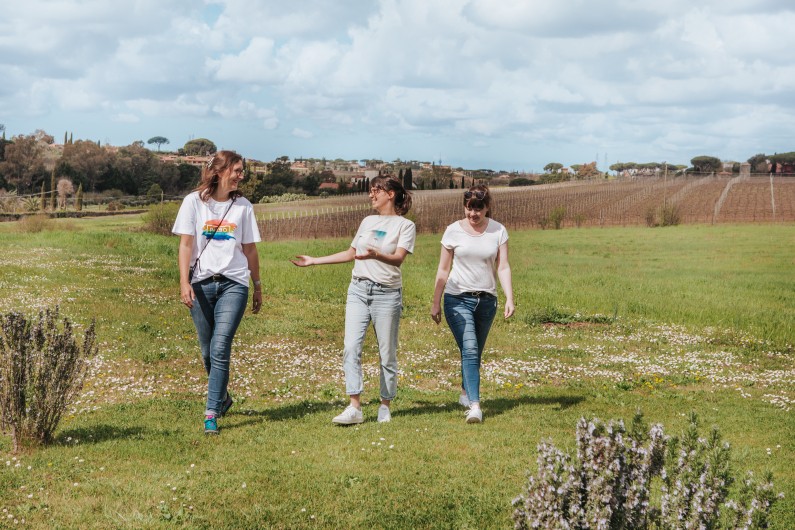“Workation” is on everyone’s lips. We at PIABO dared to just try it and enabled 30 employees to work from a country house near Rome for four weeks. Ann-Kathrin Marggraf, part of the team who organized the workation, takes us on the journey of how the workation was organized, from the idea to the implementation. In her luggage: practical tips for the perfect workation.
The idea was simple and yet brilliant at the same time. How about escaping the winter and working in the sunny south for a few weeks? Well, why not? After all, PIABO has been enabling remote working for a very long time. We can all work digitally, whether it’s the PR consultants, the HR team or our colleagues in the finance department: what we need is a laptop, a cell phone and a reliable Internet connection. So after a casual chat at the end of the workday, in the dark and chilly month of November 2021, a workation task force was created. It consisted of the PR consultants Ann-Kathrin Marggraf, Lara Schermer and Hellen Hohoff. Working closely with the HR team, they were responsible for the research, the concept and the internal communication with regard to workation 2022.
Three goals were in the foreground: It was important to us that everyone who wanted to participate in the pilot could. In addition, PIABO is a climate-friendly agency. Our commitment to climate protection is reflected not only in our ever-growing greentech unit, but also in the fact that we measure our carbon footprint every year and are constantly reducing it. Therefore, it was clear to us from the very beginning that the workation would have to be climate-friendly, i.e. that everyone could travel by (overnight) train. Ultimately, after all the time spent working remotely, we wanted to pack our bags again, put our heads together, exchange ideas and get to know each other as a team in a completely different way. After all, often, a new perspective often emerges from a change of location.
The result: four weeks of workation in Italy.
Fifteen colleagues each will spend 14 days at the Casale del Gallo country house near Rome. The spacious grounds are perfect: there are many different ways to work, from your own room to the living room, the sunbeds by the pool and the garden tables. Also, there are enough retreats for everyone and plenty of options to stretch your legs and unwind while walking or jogging. Each of the three houses has a kitchen, so groups are able to organize their own meals in the houses. The large dining table in the main house is perfect for hosting group meetings and communal dinners.
We are delighted when others feel inspired by us so that they might try a workation for themselves. Here are some tips we can share:
DEFINE THE GOALS
Prior to the workstation, it is advisable to specify which goals and objectives need to be linked to the workstation. The concept is often wrongly confused with an “offsite”. An offsite is primarily about developing as a team. The focus is on specific topics, methods or development approaches that are being introduced. In contrast, a workation is basically simply moving the office setting to a different environment. The team building is practically achieved by being together on site, there are no instruction, moderation or special workshops. At PIABO, we wanted to do just that: give employees the opportunity to get together in a new environment and also feel a little dolce vita. In addition to the basic goals, the travel arrangements had to be clarified, as well as the question of whether the employees would need to take time off for the trip there and back, or whether they would be given a day off.
WORKATION FOR EVERYONE
A workation is for everyone. Therefore, it is important to involve the entire team from the very beginning. At PIABO, we have had positive experiences with surveys which we used in order to find out what the employees expected of the workation and who could imagine being part of it. For the PIABO workation 2022 applied: PIABO covers the costs for accommodation. The journey to the location is to be paid by the employees themselves.
RESOLVING LABOR LAW ISSUES
A workation combines work and vacation. This type of work is not yet covered by labor law. Therefore, in the preliminary stages, employers should think very carefully about how they will legally regulate the workation period. Moreover, consideration should be given to the duration of the workation. If the duration of the stay is shorter than four weeks, there is no need for action under labor law. Detailed information on this can be found in this article. It would be nice if the legal framework with regard to working abroad would be adapted to the flexible working conditions of our time.
PIABO considers the workation in Italy as remote work abroad for ten working days at a time. Work-related accidents are covered by the Employer’s Liability Insurance Association. Even if it is not a deployment, the rules of a deployment apply here. It should also be ensured that all participants have health insurance coverage for foreign countries.
In Italy, the same rules apply as elsewhere: flexible time allocation on a basis of trust. In order to maintain the working atmosphere on site, we decided that everyone could take a maximum of one vacation day per week.
THE RIGHT LOCATION
Looking for the right location takes time. Therefore, it is important to take this into account during the planning phase. When looking for the perfect property, attention should be paid above all to having sufficient workspace that also makes it possible to have private conversations. At PIABO, it was important to us that everyone has a single room so that they also have a place to retreat. Next, the question of whether the property is located in the city or in the countryside needs to be addressed, as both offer certain advantages and disadvantages. Questions which should be addressed are: The Internet connection including download and upload rates, local representatives in case of inquiries, nearby shopping facilities, leisure activities in the vicinity, medical care and public transportation.
GO WITH THE FLOW
When it comes to teams, the question always arises: How many rules are necessary, how many are too many? There is no getting around the question of supply. When it comes to food, we’ve decided to share common goods among everyone. For this purpose, we use the app Splitwise. When it comes to group communication, we use Workplace’s Workchat. In the case of social media, we have nominated people who are primarily responsible. And we created a drive folder for the photos we collect. We don’t follow an editorial plan, but we consult closely with the corporate communications team.
The concept works: Everyone helps each other organize, and there’s always someone who wants to go shopping or cook for the group. For us, this shows that teams function best when they are allowed to manage themselves.


